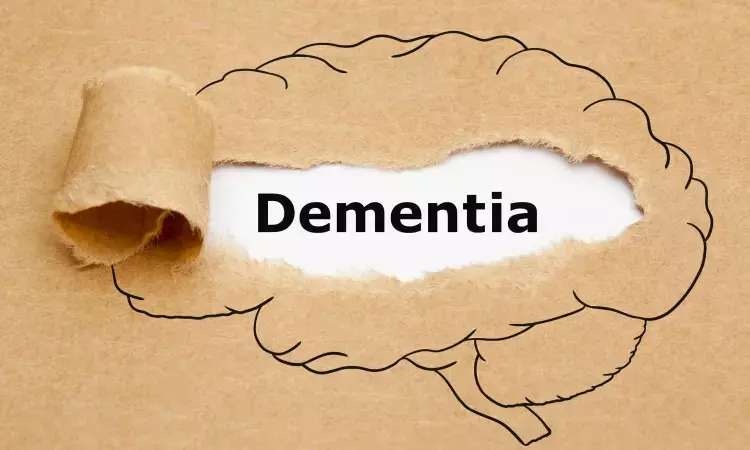- Home
- Medical news & Guidelines
- Anesthesiology
- Cardiology and CTVS
- Critical Care
- Dentistry
- Dermatology
- Diabetes and Endocrinology
- ENT
- Gastroenterology
- Medicine
- Nephrology
- Neurology
- Obstretics-Gynaecology
- Oncology
- Ophthalmology
- Orthopaedics
- Pediatrics-Neonatology
- Psychiatry
- Pulmonology
- Radiology
- Surgery
- Urology
- Laboratory Medicine
- Diet
- Nursing
- Paramedical
- Physiotherapy
- Health news
- Fact Check
- Bone Health Fact Check
- Brain Health Fact Check
- Cancer Related Fact Check
- Child Care Fact Check
- Dental and oral health fact check
- Diabetes and metabolic health fact check
- Diet and Nutrition Fact Check
- Eye and ENT Care Fact Check
- Fitness fact check
- Gut health fact check
- Heart health fact check
- Kidney health fact check
- Medical education fact check
- Men's health fact check
- Respiratory fact check
- Skin and hair care fact check
- Vaccine and Immunization fact check
- Women's health fact check
- AYUSH
- State News
- Andaman and Nicobar Islands
- Andhra Pradesh
- Arunachal Pradesh
- Assam
- Bihar
- Chandigarh
- Chattisgarh
- Dadra and Nagar Haveli
- Daman and Diu
- Delhi
- Goa
- Gujarat
- Haryana
- Himachal Pradesh
- Jammu & Kashmir
- Jharkhand
- Karnataka
- Kerala
- Ladakh
- Lakshadweep
- Madhya Pradesh
- Maharashtra
- Manipur
- Meghalaya
- Mizoram
- Nagaland
- Odisha
- Puducherry
- Punjab
- Rajasthan
- Sikkim
- Tamil Nadu
- Telangana
- Tripura
- Uttar Pradesh
- Uttrakhand
- West Bengal
- Medical Education
- Industry
Lowering blood pressure in later life can prevent dementia, study provides strong evidence

Dementia is fast becoming a global epidemic with ever increasing incidence and it is projected to triple by 2050-mainly driven by aging populations.
Researchers have found in a global study of over 28,000 people that lowering blood pressure in later life can cut the risk of dementia.
Dr Ruth Peters, Associate Professor at UNSW Sydney and Program Lead for Dementia in The George Institute's Global Brain Health Initiative, said that in the absence of significant dementia treatment breakthroughs, reducing the risk of developing the disease would be a welcome step forward.
"Given population ageing and the substantial costs of caring for people with dementia, even a small reduction could have considerable global impact," she said. "Our study suggests that using readily available treatments to lower blood pressure is currently one of our 'best bets' to tackle this insidious disease."
Dr Peters explained that while many trials have looked at the health benefits of lowering blood pressure, not many included dementia outcomes and even fewer were placebo-controlled-considered to provide the best level of evidence.
"Most trials were stopped early because of the significant impact of blood pressure lowering on cardiovascular events, which tend to occur earlier than signs of dementia," she said. To examine the relationship between blood pressure and dementia more closely, researchers analysed five double-blind placebo-controlled randomised trials that used different blood pressure lowering treatments and followed patients until the development of dementia.
A total of 28,008 individuals with an average age of 69 and a history of high blood pressure from 20 countries were included. Across these studies, the mid-range of follow up was just over four years.
"We found there was a significant effect of treatment in lowering the odds of dementia associated with a sustained reduction in blood pressure in this older population," said Dr Peters. "Our results imply a broadly linear relationship between blood pressure reduction and lower risk of dementia, regardless of which type of treatment was used."
Researchers hope the results will help in designing public health measures to slow the advance of dementia as well as informing treatment, where there may be hesitations around how far to lower blood pressure in older age.
"Our study provides the highest grade of available evidence to show that blood pressure lowering treatment over several years reduces the risk of dementia, and we did not see any evidence of harm," said Dr Peters.
"But what we still don't know is whether additional blood pressure lowering in people who already have it well-controlled or starting treatment earlier in life would reduce the long-term risk of dementia.
Reference:
Ruth Peters, Ying Xu, Oisin Fitzgerald, Htein Linn Aung, Nigel Beckett, Christopher Bulpitt, John Chalmers, Francoise Forette, Jessica Gong, Katie Harris, Peter Humburg, Fiona E Matthews, Jan A Staessen, Lutgarde Thijs, Christophe Tzourio, Jane Warwick, Mark Woodward, Craig S Anderson, for the Dementia rIsk REduCTion (DIRECT) collaboration, Blood pressure lowering and prevention of dementia: an individual patient data meta-analysis, European Heart Journal, 2022;, ehac584, https://doi.org/10.1093/eurheartj/ehac584
Dr Kamal Kant Kohli-MBBS, DTCD- a chest specialist with more than 30 years of practice and a flair for writing clinical articles, Dr Kamal Kant Kohli joined Medical Dialogues as a Chief Editor of Medical News. Besides writing articles, as an editor, he proofreads and verifies all the medical content published on Medical Dialogues including those coming from journals, studies,medical conferences,guidelines etc. Email: drkohli@medicaldialogues.in. Contact no. 011-43720751


